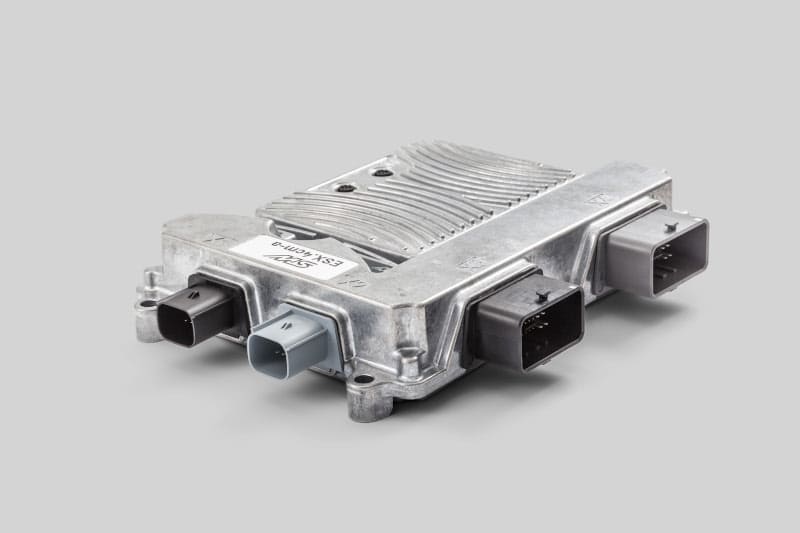The automation of mobile machines requires maximum flexibility in the choice of communication interfaces. With the ESX.4cm-a, STW from Kaufbeuren offers a control unit with exceptional performance and flexibility.
The ESX.4cm-a control unit has been designed for use in the most adverse environmental conditions. With a die-cast aluminum housing, it has a protection class of up to IP6k9k. Vibration, dirt and dust, and extreme temperatures such as those found in mining, agriculture and forestry are no challenge for this freely programmable control unit. Stefan Hohn, Product Manager for control systems at STW, explains the increasingly demanding requirements in these industries: “In these types of mobile machines, the trend is also towards more autonomous processes. The amount of data being processed on the machines is growing, and the guidelines and normative frameworks are becoming increasingly restrictive. This requires control systems that are up to the current challenges in terms of networking and performance.”
To this end, the ESX.4cm-a has a powerful multicore processor with 3x 300 MHz as well as a managed Ethernet switch, which processes signals of up to 100 Mbit/s without negatively affecting the processor performance. There are two Ethernet and two Broad-R-Reach interfaces available. Furthermore, machine communication can be implemented on 4 CAN ports.
The high-performance ESX.4cm-a provides a total of 34 configurable, multifunction analog and digital inputs. They read and process a wide variety of signal types, including incremental encoder signals and the SENT protocol. The control unit provides fixed and programmable supply voltages between 5 and 12 V for supplying sensors. The 29 low-side and high-side outputs handle up to 4A each, depending on the configuration.
Like all STW control units, the ESX.4cm-a is certified for safety applications according to SIL2/PLd. Stefan Hohn explains further benefits for safety applications: “With the multicore architecture, safety and non-safety applications can be implemented on separate processor cores. This simplifies product improvements enormously, since in the event of updates to the application core, a subsequent safety certification of the overall system is not necessary.”
With support from STW’s openSYDE software suite, implementation, commissioning and diagnostics with these control units are all particularly user friendly. This open source software suite offers the possibility to define, implement and test functionalities in “C” and in Structured Text (ST) according to IEC61131 (based on logi.CAD3). Numerous predefined widgets in the user environment allow easy visualization and analysis of machine data.

